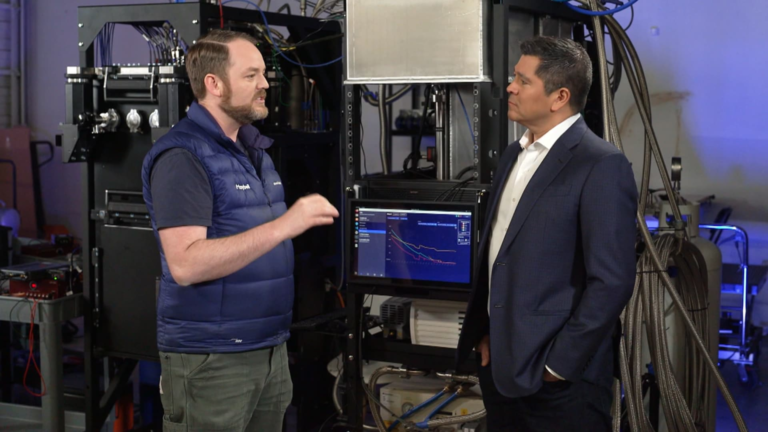An Atom Computing employee engaged in work on a computer screen.
CNBC
This story is part of CNBC’s quarterly Cities of Success series, which explores cities that have transformed into business hubs with an entrepreneurial spirit that has attracted capital, companies and employees.
Imagine a world where computers solve problems billions of times faster than today’s machines can, ushering in a new era of scientific discovery.
That’s the promise of quantum technology — and a fierce race is underway to unlock its potential. In the shadow of the Rocky Mountains, the Denver-Boulder region is emerging as a global leader in this revolution.
Atom Computing is based in the San Francisco area, but CEO Rob Hays told CNBC in a recent interview why his quantum company chose the city of Boulder for its new $100 million facility: the region’s thriving ecosystem.
“The future looks really bright for us here. … We’ve built two of the largest quantum computers on the planet,” Hays said in CNBC’s primetime special “Cities of Success: Denver & Boulder,” which airs April 11 at 10 p.m. ET. “The fact that we’ve been able to do that in 18 months is pretty remarkable.”
In Denver, Maybell Quantum, another key player in the industry, is building a super refrigerator that chills atoms to extreme temperatures — more than 100,000 times colder than the coldest part of Antarctica.
Maybell Quantum CEO Corban Tillemann-Dick (left) and CNBC’s Carl Quintanilla stand in front of a super refrigerator that chills atoms to incredibly low temperatures which is crucial for building quantum computers.
CNBC
“It’s 10 millikelvin,” said Maybell Quantum CEO Corban Tillemann-Dick. That equates to negative 441.67 degrees Fahrenheit.
Why so cold? The frigid conditions are essential for quantum computers to operate. The supercooled environment helps minimize even the tiniest vibrations that can disrupt a quantum chip’s delicate subatomic calculations.
Promise and potential
Just like semiconductors fueled powerful computers and networking devices that made today’s complex internet possible, Tillemann-Dick said the next big thing could be quantum technology.
“This technology is going to be as important to the next 100 years as semiconductors [were to] the internet or cellular technology. It’ll transform everything from medicine to defense to agriculture,” he said.
The CEO said he envisions data centers filled with rows of quantum computers tackling the world’s most pressing problems.
“There will come a time not too far in the future … you will walk into a data center and there will be thousands of [quantum computers] lined up just like you have servers today, working on workloads from all over the world to solve these critical problems,” he said.
Colorado’s race to become a quantum hub
Physicist Richard Feynman is credited with pioneering the idea of quantum computing in the 1980s. It’s come a long way since then. According to McKinsey, the four industries that are poised to see the biggest boost from…
Read More: Denver-Boulder aims to be Silicon Valley of the future



